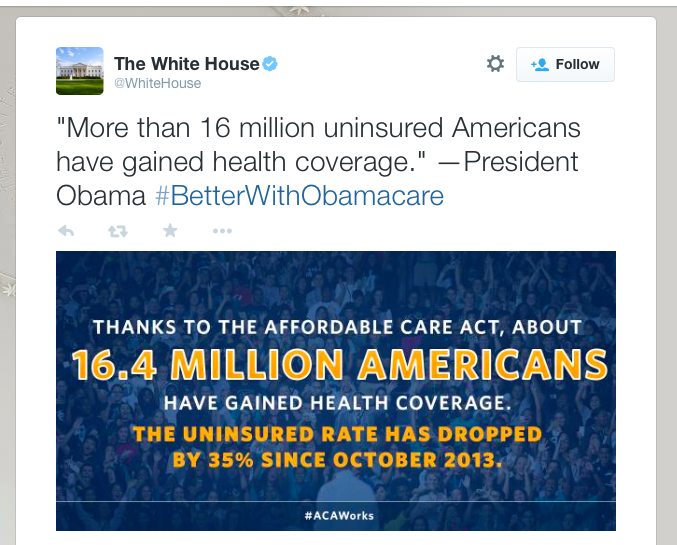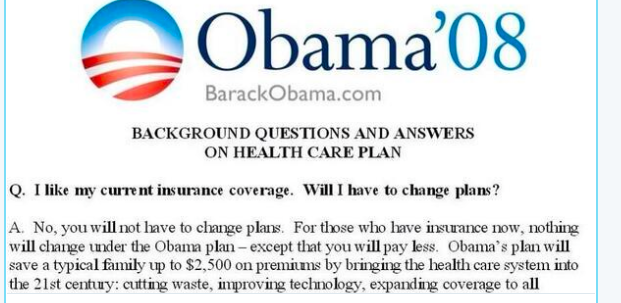“More than 16 million uninsured Americans have gained health coverage,” Obama recently tweeted, while simultaneously neglecting to mention that this is exactly what you’d expect when you force people to buy insurance.
Force, as I’ve always said, is the heart-and-soul of all (so-called) progressive ideology.
For those who, like me, are being nailed with a “penalty tax” — which, in case you’ve forgotten, is not actually a tax — and likewise for those people who have gotten cancellation notices or have seen premium increases, the news, unfortunately, is not quite so rosy as Obama and his clownish administration would have you believe, all their propaganda to the contrary notwithstanding.
Also, I would be remiss if I didn’t point out the absurdly obvious: namely, forcing people off existing plans in order to force them into more expensive (and inferior) plans does not, to any sane person, constitute success. In fact, that sort of thing only occurs in the minds of bureaucrats and all other similarly insane people.
Here’s what Barack Obama’s tweet actually translates to:
“Forcing people into my bureaucratic nightmare worked even better than I thought it would” (Barack Obama, March 25th, 2015).
Which is, of course, to say nothing of the fact that health “insurance” — i.e. pre-paid healthcare — is the primary reason healthcare is so wildly expensive in America today.
If there’s anyone out there who truly believes Obamacare is a good thing, ask yourself:
Which plan is Obama and his family on?
Ask yourself further:
If Obamacare is so excellent, why are Democratic Senators begging for another delay?
Prediction: we’ll only hear crickets chirping in response to my challenge for anyone — anyone — to defend to me this bureaucratic monstrosity known as Obamacare. And the reason we’ll only hear crickets chirping is that anyone who attempts to defend this will, in effect, be defending the wild notion that the IRS has and should have legitimate control over your health.
“If you like your plan, you can keep your plan. Period.” — Barack Obama, 2009, 2010, 2011, 2012, 2013.









